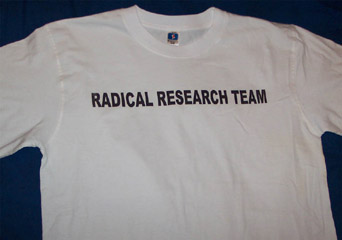T-shirts produced by Concordia students who were inspired
by the discussions in the philosophy of science classes


T-shirts produced by Concordia students who were inspired
|
Department of Physics
PHYS 204 - Mechanics PHYS 206 - Waves and Modern Physics PHYS 346 - Advanced Classical Mechanics and Special Relativity Weekly seminar on General Relativity for graduate physics studentsI think Wheeler's first moral principle captures the essence of successful teaching of physics:
"Never make a calculation until you know the answer. Make an estimate before every calculation, try a simple physical argument (symmetry! invariance! conservation!) before every derivation, guess the answer to every paradox and puzzle. Courage: No one else needs to know what the guess is. Therefore make it quickly, by instinct. A right guess reinforces this instinct. A wrong guess brings the refreshment of surprise. In either case life as a spacetime expert, however long, is more fun!" [1]1. E.F. Taylor, J.A. Wheeler, Spacetime Physics, 2nd ed. (W.H. Freeman & Company, New York 1992), p. 20
Science College
Liberal Arts College
Department of Philosophy
PHIL 220 - Introduction to the Philosophy of Science
PHIL 263 - Introduction to Epistemology
PHIL 214 - Deductive Logic